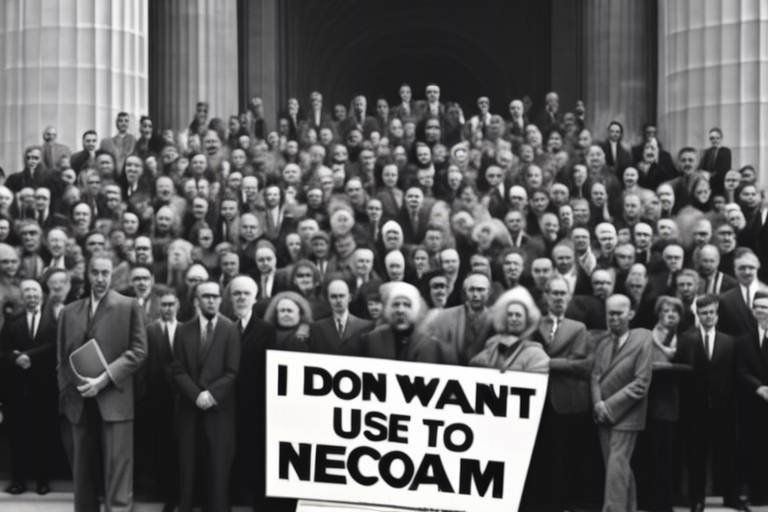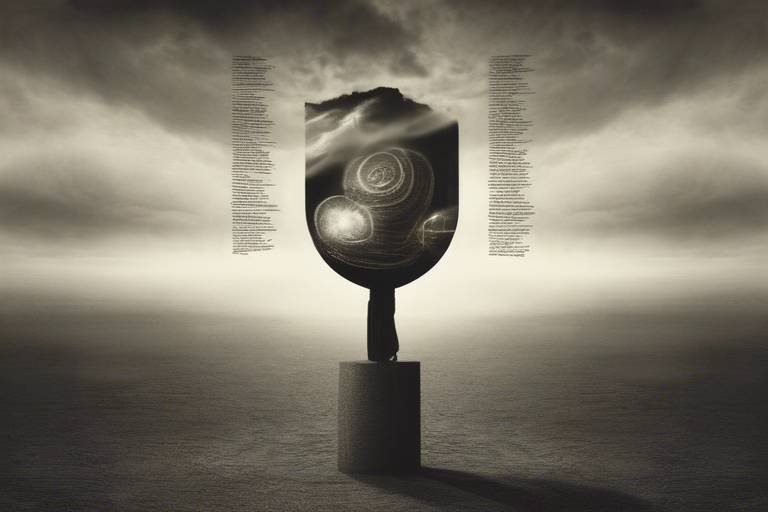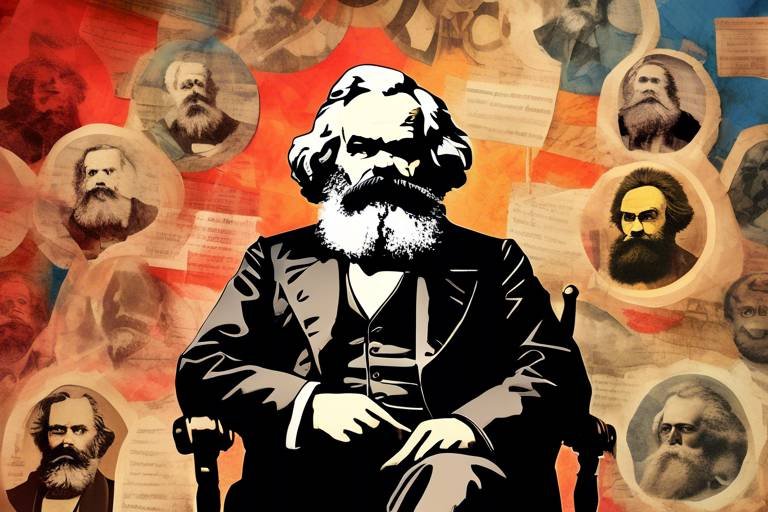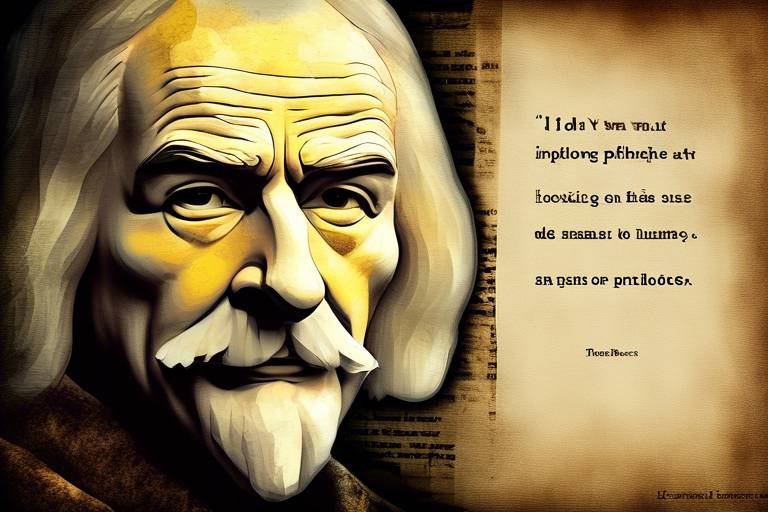Is Ignorance Bliss? A Philosophical Analysis
In a world teeming with information, the phrase "ignorance is bliss" often echoes in our minds, prompting us to question the relationship between knowledge and happiness. But what does it truly mean? Is it possible that not knowing something can shield us from pain and discomfort, allowing us to live more peacefully? This article explores the concept of ignorance as bliss, examining its implications in philosophy, psychology, and everyday life. We will analyze arguments for and against this idea through various perspectives.
Understanding what ignorance truly means is essential. Ignorance is not merely the absence of knowledge; it can be categorized into various types, such as simple ignorance (lack of knowledge about something) and willful ignorance (choosing to remain uninformed). This concept manifests in human behavior and decision-making processes in ways that can be both surprising and enlightening. For instance, when faced with complex issues, individuals may opt for ignorance to avoid the mental burden of grappling with difficult truths. This choice can lead to a paradox where, in the short term, ignorance seems to provide comfort, but in the long run, it may hinder personal growth and understanding.
Various philosophers have debated the idea of ignorance and its relationship to happiness. Socrates famously stated that "the unexamined life is not worth living," suggesting that knowledge is essential for a fulfilling existence. In contrast, some contemporary thinkers argue that there are moments when ignorance can indeed be a source of happiness. This section highlights key philosophical arguments, including those from Socrates, Plato, and modern philosophers.
Plato's allegory illustrates the tension between ignorance and enlightenment. In this allegory, prisoners are chained inside a cave, only able to see shadows on the wall, which they believe to be reality. When one prisoner escapes and discovers the outside world, he realizes the painful truth of their ignorance. This journey symbolizes the struggle for knowledge and the discomfort that often accompanies it. The cave represents a safe, albeit false, reality where ignorance breeds a false sense of security, while the outside world, filled with harsh truths, challenges our perceptions and beliefs.
The Prisoners' Dilemma presents a scenario where ignorance can lead to a perceived state of happiness. In this thought experiment, two prisoners must decide whether to betray each other or remain silent. If both choose to remain silent, they receive a lighter sentence. However, if one betrays the other, the betrayer goes free while the other faces a harsher punishment. The dilemma reflects the complexities of ignorance, as the prisoners' choices hinge on their knowledge of each other's intentions. This situation illustrates how ignorance can sometimes lead to better outcomes, albeit at the cost of trust and cooperation.
This subsection examines the conflict between acquiring knowledge and maintaining happiness. The age-old question arises: can ignorance genuinely provide a more fulfilling life than the pursuit of truth? While knowledge can lead to enlightenment, it can also unveil harsh realities that disrupt our peace of mind. For instance, consider the saying, "What you don't know can't hurt you." This notion suggests that by avoiding certain truths, we can preserve our happiness. However, this raises another question: is a life built on ignorance truly fulfilling, or is it merely a facade that crumbles when faced with reality?
Psychology offers valuable insights into the effects of ignorance on mental well-being. Studies reveal that ignorance can sometimes lead to reduced anxiety and stress. For example, individuals who choose to remain unaware of certain negative news or social issues may experience a sense of peace that those who are well-informed do not. However, this temporary bliss can be misleading, as it often comes at the cost of being unprepared for reality. The balance between knowledge and ignorance becomes crucial in determining our overall happiness and mental health.
In daily situations, people often choose ignorance to avoid discomfort. This section explores real-life examples where ignorance may seem preferable to knowledge, as well as the consequences of such choices. For instance, consider the common scenario of avoiding a doctor's appointment due to fear of bad news. Many individuals would rather live in blissful ignorance than confront the potential reality of illness. However, this avoidance can lead to more severe consequences down the line, ultimately undermining the very happiness they sought to preserve.
The prevalence of misinformation on social media raises questions about the bliss of ignorance. In a digital age where information is at our fingertips, users must navigate a maze of facts and falsehoods. The comfort of ignorance can be appealing, as it allows individuals to avoid confronting uncomfortable truths. However, this blissful state can lead to a distorted perception of reality, where misinformation breeds confusion and fear. As we scroll through our feeds, we must ask ourselves: are we better off knowing the truth, or is it easier to remain blissfully unaware?
Many individuals avoid seeking medical advice due to fear. This section discusses how ignorance regarding health can lead to temporary bliss but ultimately may result in detrimental consequences. For example, someone might ignore troubling symptoms, convincing themselves that everything is fine. While this may provide short-term comfort, the long-term repercussions can be severe. By choosing ignorance, individuals risk their health and well-being, illustrating the delicate balance between knowledge and happiness.
- What does "ignorance is bliss" mean? - It suggests that not knowing something can lead to a happier state of mind.
- Is ignorance always harmful? - Not necessarily; in some cases, ignorance can reduce anxiety and stress.
- How do philosophers view ignorance? - Philosophers debate whether ignorance can lead to true happiness or if knowledge is essential for a fulfilling life.
- Can ignorance protect us? - It can offer temporary protection from uncomfortable truths, but often at a greater long-term cost.

The Nature of Ignorance
Understanding what ignorance truly means is essential to grasping its implications in our lives. At its core, ignorance refers to a lack of knowledge, understanding, or awareness about something. It can manifest in various forms, from simple unawareness of facts to a deeper, more profound absence of insight into complex issues. In our day-to-day existence, ignorance often influences our decisions, shapes our beliefs, and even colors our emotions. Imagine walking through a dense fog; that fog represents ignorance, obscuring our view of reality and making navigation difficult.
Ignorance can be categorized into several types, including:
- Simple Ignorance: This is a lack of knowledge about specific facts or information, often easily rectified through education or experience.
- Willful Ignorance: This type occurs when individuals consciously choose to ignore certain facts or evidence, often to maintain comfort or avoid conflict.
- Innocent Ignorance: Sometimes, people are unaware of their ignorance, believing they possess knowledge that they do not.
These different forms of ignorance can lead to a variety of human behaviors. For instance, in decision-making processes, individuals might opt for the comfortable path of ignorance rather than confront uncomfortable truths. This choice can be likened to choosing to wear blinders while riding a horse; it keeps you from seeing the potential dangers around you, but it also limits your ability to make informed choices. The implications of this ignorance can be far-reaching, affecting not only the individual but also those around them.
In a world overflowing with information, the paradox of ignorance becomes even more pronounced. With the advent of the internet and social media, people are bombarded with information, yet they often choose to remain ignorant of critical issues. This selective ignorance can create a false sense of security, where individuals feel blissfully unaware of the complexities and challenges of the world. However, this bliss can be deceptive, as it may shield them from necessary truths that could lead to personal growth and societal improvement.
Moreover, ignorance can also be a double-edged sword. While it may provide temporary relief from anxiety or distress, it can lead to significant long-term consequences. For example, consider someone who avoids learning about climate change because the information is overwhelming. While they may feel less stressed in the short term, their ignorance contributes to a larger problem that affects everyone. The challenge lies in balancing the comfort of ignorance with the necessity of knowledge, a tension that is at the heart of many philosophical debates.
In conclusion, the nature of ignorance is complex and multifaceted. It influences our behaviors, shapes our decisions, and can either protect us or lead us astray. As we navigate through life, understanding the types and implications of ignorance can empower us to seek knowledge and awareness, ultimately leading to a more fulfilling existence.
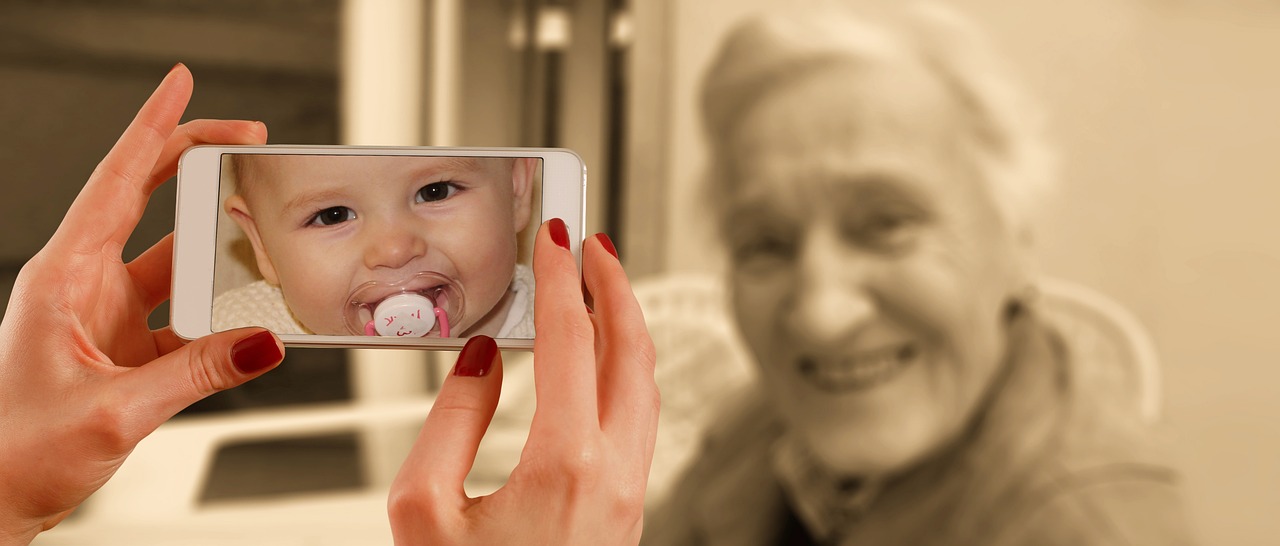
Philosophical Perspectives
When we dive into the philosophical realm of ignorance and happiness, we find ourselves amidst a rich tapestry of ideas woven by some of history's greatest thinkers. The question of whether ignorance is indeed bliss has sparked debates that echo through time, challenging our understanding of knowledge, truth, and the human experience. Think about it: how many times have you wished you could unlearn something painful? Or perhaps, you've seen someone blissfully unaware of their circumstances, seemingly happier than those who know the hard truths. This paradox is at the heart of philosophical inquiry.
One of the most notable figures in this discourse is Socrates, who famously asserted that "the unexamined life is not worth living." For Socrates, ignorance was not bliss; rather, it was a state to be transcended through critical questioning and self-reflection. He believed that true happiness comes from understanding oneself and the world around us. In contrast, Plato, a student of Socrates, offered a more nuanced view through his allegory of the cave. In this allegory, prisoners are chained inside a dark cave, only able to see shadows cast on the wall. These shadows represent the limited knowledge and ignorance of the prisoners, who mistake them for reality. Plato suggests that the journey toward enlightenment is painful but ultimately rewarding, highlighting the tension between ignorance and knowledge.
Furthermore, contemporary philosophers have added layers to this discussion. Thinkers like Friedrich Nietzsche and Jean-Paul Sartre have explored the existential dimensions of ignorance. Nietzsche, for instance, argued that ignorance can sometimes serve as a protective mechanism, shielding individuals from the harshness of reality. In his view, the struggle to confront uncomfortable truths is what shapes our character and leads to personal growth. On the other hand, Sartre emphasized the weight of freedom that comes with knowledge. He posited that with knowledge comes responsibility, and many prefer the comfort of ignorance to avoid the burden of making difficult choices.
To illustrate these philosophical perspectives further, let’s consider a table that summarizes the views of these key thinkers:
| Philosopher | View on Ignorance |
|---|---|
| Socrates | Ignorance is a state to be transcended; true happiness comes from self-examination. |
| Plato | Ignorance is represented by the shadows in the cave; enlightenment is a painful yet rewarding journey. |
| Nietzsche | Ignorance can protect individuals from harsh realities, but confronting truth leads to growth. |
| Sartre | Knowledge brings freedom and responsibility; many choose ignorance to avoid difficult choices. |
These perspectives reveal the multifaceted nature of ignorance and happiness. While some philosophers argue that ignorance may provide a temporary sense of comfort, others contend that true fulfillment lies in the pursuit of knowledge, no matter how daunting that journey might be. This ongoing dialogue invites us to reflect on our own lives: Are there areas where we prefer ignorance for the sake of comfort? Or do we embrace the uncomfortable truths that come with knowledge, believing that they ultimately lead to a richer, more meaningful existence?
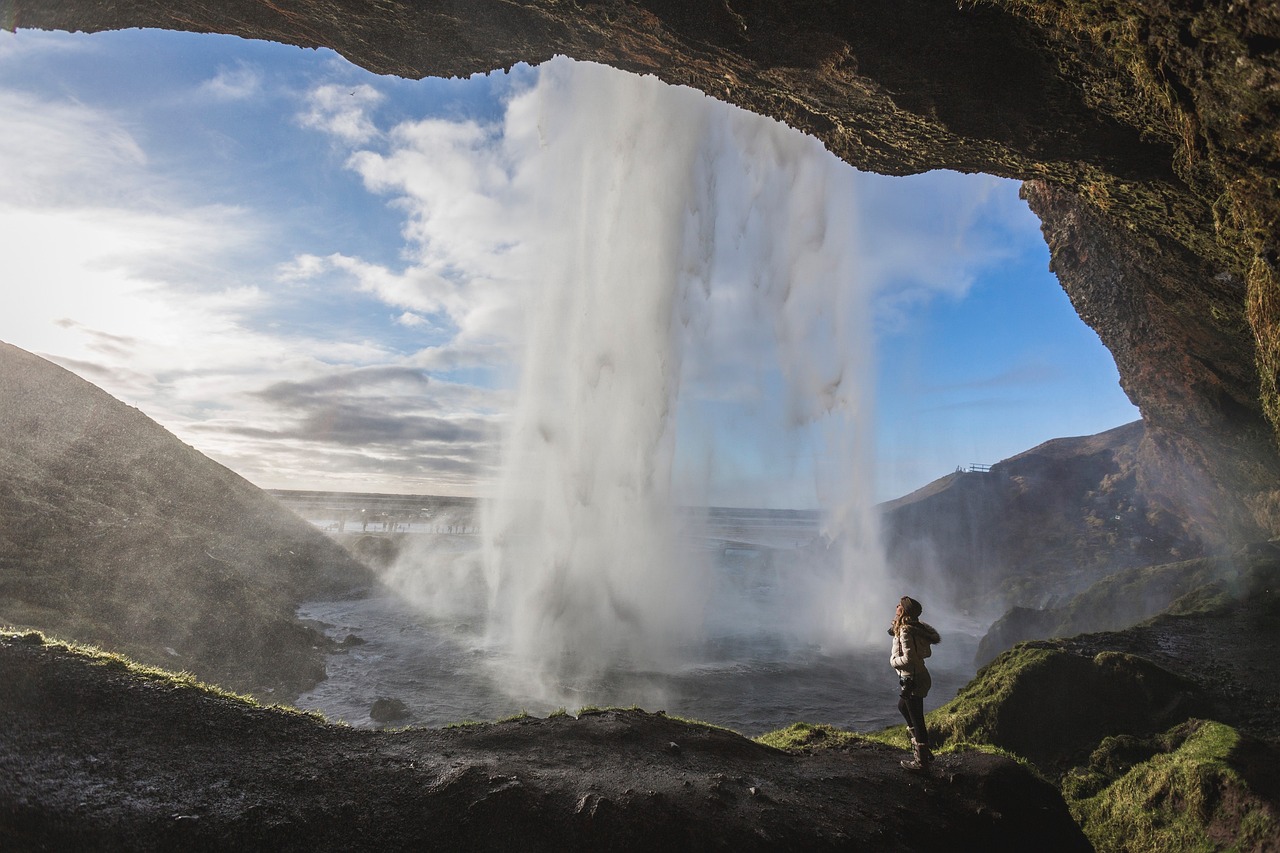
Plato's Allegory of the Cave
Plato's Allegory of the Cave is one of the most profound metaphors in philosophical literature, illustrating the stark contrast between ignorance and enlightenment. Imagine a group of prisoners who have been chained inside a dark cave for their entire lives, facing a blank wall. The only reality they know is the flickering shadows cast on the wall from objects behind them, illuminated by a fire. These shadows represent their entire understanding of the world. They believe these shadows are the entirety of existence, completely unaware of the true forms of reality behind them.
In this allegory, the cave symbolizes ignorance, while the journey out of the cave represents the painful yet necessary path to knowledge and truth. When one prisoner finally breaks free and ascends to the outside world, he is initially blinded by the sunlight, which signifies the overwhelming nature of true knowledge. This experience can be likened to waking up from a long, comfortable dream—initially disorienting but ultimately liberating. As the freed prisoner begins to see the world as it truly is, he realizes that the shadows he once believed to be real were mere illusions, a façade that kept him in a state of blissful ignorance.
However, the journey does not end there. Upon returning to the cave to enlighten the others, he faces skepticism and hostility. The remaining prisoners, comfortable in their ignorance, resist the idea that their reality is flawed. This reaction underscores a critical point: the fear of change and the discomfort of confronting uncomfortable truths can often lead individuals to cling to ignorance, even when faced with the possibility of greater happiness through knowledge. The allegory raises essential questions about the nature of reality, the value of knowledge, and whether it is better to live in blissful ignorance or to seek out the often painful truths of existence.
Ultimately, Plato's Allegory of the Cave serves as a powerful reminder of the complexities surrounding ignorance and enlightenment. It challenges us to reflect on our own lives: Are we, too, prisoners in our caves, content with the shadows that dance on the walls of our understanding? Or are we willing to step into the light, despite the initial discomfort it may bring? The choice between ignorance and knowledge is not merely philosophical; it has profound implications for our happiness and well-being.
- Ignorance can be comforting: The prisoners in the cave find solace in their limited understanding of reality.
- The journey to knowledge is challenging: Enlightenment often involves discomfort and resistance.
- Truth can be met with hostility: Those who seek to enlighten others may face rejection and hostility.
- Awareness is a choice: We must decide whether to remain in ignorance or to pursue truth.
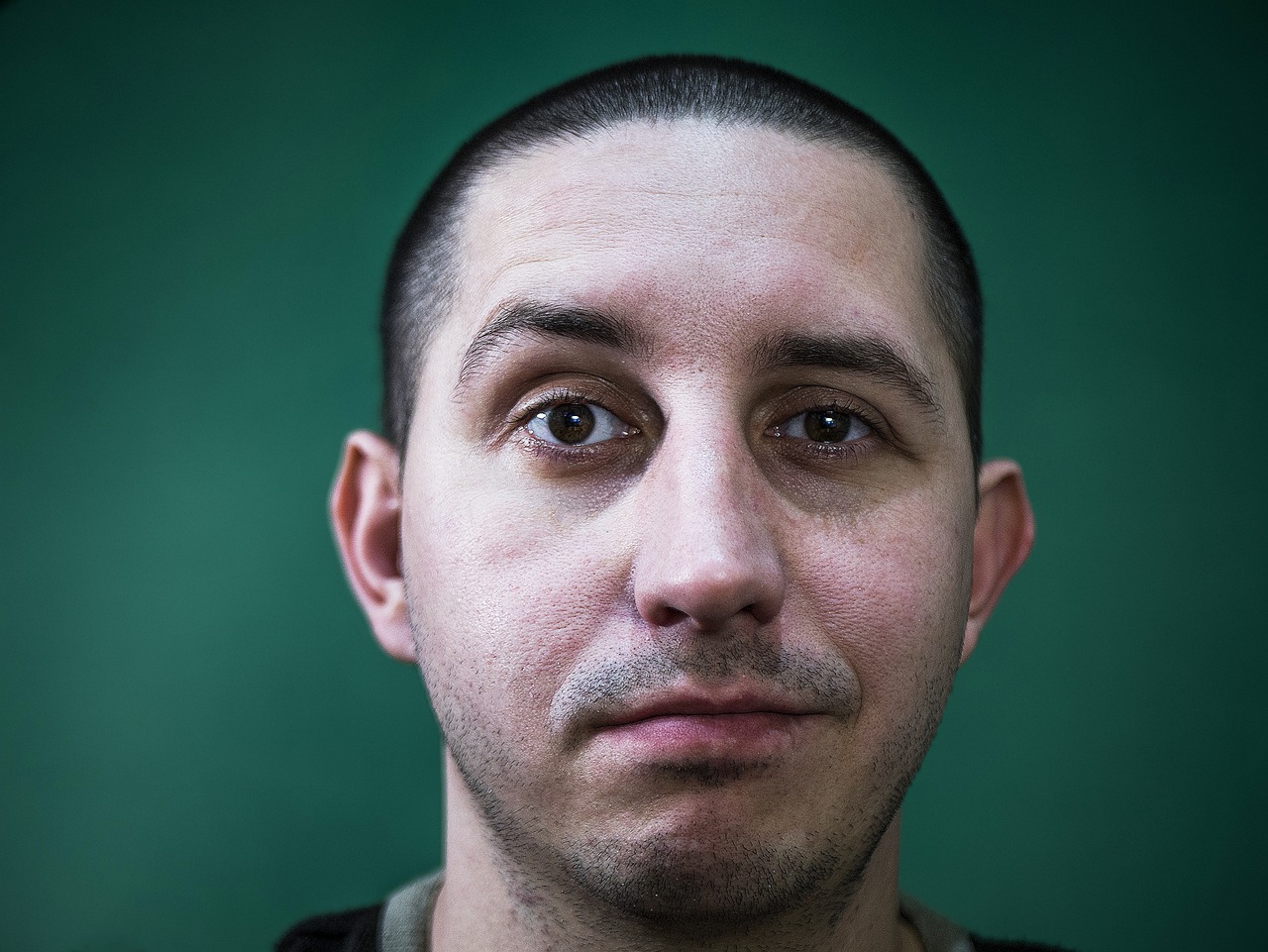
The Prisoners' Dilemma
The Prisoners' Dilemma is a classic example in game theory that illustrates the complexities of decision-making under pressure, particularly when it comes to ignorance and knowledge. Imagine two criminals, let's call them Alice and Bob, who have been arrested for a crime. They are held in separate cells and cannot communicate with each other. The police offer each prisoner a deal: if one betrays the other by testifying against them while the other remains silent, the betrayer will go free, while the silent one will face a harsh sentence. If both stay silent, they both receive a light sentence. However, if both betray each other, they both end up with a moderate sentence.
This scenario creates a fascinating tension between self-interest and mutual cooperation. If Alice and Bob act out of ignorance, assuming the other will remain silent, they might choose the safer route of silence and both benefit. However, if they each choose to betray the other, driven by the fear of being taken advantage of, they end up worse off. This dilemma raises an intriguing question: Is it better to remain ignorant of the potential betrayal of the other, or to seek knowledge and risk the consequences of betrayal?
The underlying theme here is that ignorance can sometimes shield us from the harsh realities of decision-making. In the case of Alice and Bob, if they were blissfully unaware of the deal in place, they might make choices that lead to a more favorable outcome. On the flip side, the knowledge of the deal creates a pressure that can lead to anxiety and suboptimal choices. This reflects a broader philosophical inquiry into whether knowing too much can actually hinder our happiness.
Ultimately, the Prisoners' Dilemma serves as a metaphor for the choices we face in life. It illustrates how ignorance can sometimes provide a false sense of security, while knowledge can introduce complexities that complicate our decisions. The struggle between choosing ignorance for the sake of peace and seeking knowledge for the sake of truth is a recurring theme not just in philosophy, but in our everyday lives.
- What is the main takeaway from the Prisoners' Dilemma?
The main takeaway is that ignorance can sometimes lead to better outcomes than knowledge, particularly when fear and anxiety influence decision-making. - How does the Prisoners' Dilemma relate to real-life situations?
It relates to everyday choices where individuals must weigh the risks of betrayal against the benefits of cooperation, often influenced by their knowledge or ignorance of others' intentions. - Can ignorance ever be beneficial?
Yes, in certain contexts, ignorance can provide a sense of peace and reduce anxiety, allowing individuals to make decisions without the burden of overwhelming information.

Knowledge vs. Happiness
The age-old debate of knowledge versus happiness raises some intriguing questions that many of us grapple with in our daily lives. On one hand, knowledge is often seen as a pathway to understanding the world around us, while on the other, the pursuit of happiness can sometimes feel like a simpler, more fulfilling goal. So, what gives? Are we better off knowing the harsh realities of life, or is it more blissful to remain in a state of ignorance?
To illustrate the complexities of this relationship, consider the following scenarios:
- Awareness of Global Issues: Knowing about climate change, poverty, and war can be overwhelming and lead to feelings of despair. Many people find themselves paralyzed by the enormity of these issues, leading to anxiety and hopelessness.
- Personal Relationships: Being aware of a partner's flaws can create tension and dissatisfaction. Sometimes, ignorance can be a shield that protects us from the discomfort of reality, allowing us to enjoy the moment rather than dwell on potential problems.
- Health Knowledge: Understanding the risks associated with certain lifestyle choices can be daunting. While knowledge can empower us to make better decisions, it can also lead to stress and fear about our health and longevity.
These examples highlight a critical point: the pursuit of knowledge does not always lead to happiness. In fact, some studies suggest that individuals who are less informed about certain issues tend to report higher levels of happiness and lower levels of anxiety. This phenomenon can be attributed to a psychological concept known as the “paradox of choice,” where having too many options or too much information can lead to decision fatigue and dissatisfaction.
Interestingly, this dilemma often leads people to make a conscious choice between the two. For instance, some individuals may choose to limit their exposure to news or social media to maintain their mental well-being. They prioritize their happiness over the discomfort that comes with knowledge. But is this a wise decision? While it might provide temporary relief, the long-term consequences of ignorance can be significant. Ignorance can lead to poor decision-making, as individuals may not have all the information necessary to navigate life's challenges effectively.
Ultimately, the balance between knowledge and happiness is a delicate one. The key lies in how we process and respond to the information we encounter. It’s essential to develop a healthy relationship with knowledge—one that allows us to stay informed without becoming overwhelmed. This balance might involve setting boundaries on the information we consume or practicing mindfulness to mitigate the stress that comes with awareness.
In conclusion, the question of whether knowledge or happiness reigns supreme is not easily answered. It’s not a matter of choosing one over the other but rather finding a harmonious coexistence between the two. As we navigate our lives, we must ask ourselves: How can we seek knowledge while still prioritizing our happiness? This ongoing journey of self-exploration will ultimately lead us to a deeper understanding of ourselves and the world around us.

Psychological Insights
The relationship between ignorance and mental well-being is a fascinating area of study in psychology. It’s almost like a double-edged sword; on one side, ignorance can shield us from harsh realities, while on the other, it can prevent us from making informed decisions that could enhance our lives. Research has shown that sometimes, not knowing certain things can actually lead to a decrease in anxiety and stress levels. For example, when people are unaware of the potential risks associated with a situation, they often feel more relaxed and at ease. But, is this a sustainable way to live?
Consider the illusion of safety that ignorance provides. Many individuals might choose to remain uninformed about their health conditions or financial situations. This choice can lead to temporary bliss, as they avoid the stress that comes with facing uncomfortable truths. However, this bliss can be deceptive. In the long run, the lack of knowledge might result in more significant problems that could have been mitigated had they chosen to confront the facts.
Several studies highlight the paradox of ignorance and happiness. For instance, a study published in the journal Psychological Science found that individuals who were unaware of negative feedback about themselves tended to report higher levels of self-esteem. This suggests that ignorance can create a protective bubble where individuals feel better about themselves. Yet, this bubble can burst at any moment, leading to a harsher reality that they are unprepared to handle.
Furthermore, the concept of cognitive dissonance plays a significant role here. When people hold conflicting beliefs or attitudes, it creates discomfort. To alleviate this discomfort, they might choose to ignore certain information that contradicts their existing beliefs. For example, someone might dismiss scientific evidence about climate change because acknowledging it would require a significant shift in their lifestyle. This selective ignorance can lead to a temporary sense of comfort, but it may also hinder personal growth and societal progress.
In summary, while ignorance can provide a short-term sense of relief from anxiety and stress, it often comes at a greater cost. The psychological insights into this phenomenon reveal a complex interplay between knowledge, happiness, and mental well-being. The challenge lies in finding a balance between embracing knowledge and managing the discomfort that often accompanies it. After all, is it truly better to live in blissful ignorance, or is the pursuit of truth and understanding the path to a more fulfilling life?
- What is the main idea behind the concept of ignorance as bliss?
The idea suggests that not knowing certain truths can lead to a happier or more peaceful state of mind, even if it may not be sustainable in the long run. - How does ignorance affect mental health?
While ignorance can reduce anxiety in the short term, it may lead to more significant issues later on, as individuals may be unprepared for harsh realities. - Can ignorance ever be beneficial?
In certain contexts, like avoiding unnecessary worry about specific situations, ignorance can provide temporary comfort. However, it often hinders informed decision-making. - What role does cognitive dissonance play in ignorance?
Cognitive dissonance can lead individuals to ignore conflicting information to maintain their beliefs, resulting in a false sense of comfort.

Ignorance in Everyday Life
In our fast-paced world, the notion of ignorance often creeps into our daily lives, subtly shaping our decisions and behaviors. It’s intriguing how many people choose to remain blissfully unaware of certain realities, believing that ignorance can shield them from discomfort or pain. Think about it: when faced with challenging news or complex issues, isn’t it easier to just tune out? This choice is not merely a reflection of laziness; it’s a profound commentary on human nature and our instinctive desire to protect our emotional well-being.
Consider the scenario where an individual hears about a troubling event, such as a natural disaster or a political upheaval. The immediate reaction might be to scroll past the headlines, opting for a more lighthearted article. This behavior illustrates a common tendency to avoid information that could cause anxiety. It’s almost like putting on blinders to the harsh realities of life, allowing one to navigate through their day with a semblance of peace. However, this peace is often superficial, leading to a deeper question: is it genuinely beneficial to remain in this state of ignorance?
Real-life examples abound where ignorance appears to be a preferable choice. For instance, consider the realm of personal finances. Many people choose to ignore their mounting debt, believing that by not acknowledging it, they can avoid the stress associated with financial planning. This can be likened to an ostrich burying its head in the sand. While this may provide temporary relief, the consequences can be dire, leading to financial ruin and a more profound sense of anxiety in the long run.
Moreover, the rise of social media has exacerbated the situation. Users often encounter a deluge of information, much of which is misleading or outright false. In an effort to maintain a positive outlook, some individuals may choose to ignore the negative aspects of news and focus solely on uplifting content. This selective exposure can create a distorted perception of reality, where ignorance becomes a coping mechanism. Yet, as we navigate this information age, the line between ignorance and bliss blurs, leaving us to ponder the true cost of our choices.
Another area where ignorance plays a critical role is in health choices. Many individuals avoid seeking medical advice due to fear of bad news. This avoidance can lead to a false sense of security, where one believes that by not knowing their health status, they are somehow protected from potential issues. However, this ignorance can be detrimental, as it may delay necessary treatments and lead to worse outcomes. It’s a classic case of short-term bliss overshadowing long-term well-being.
Ultimately, the implications of choosing ignorance in everyday life are significant. While it may provide temporary comfort, the long-term effects can be quite the opposite. It’s essential to strike a balance between staying informed and managing emotional health. Perhaps the real question we should be asking ourselves is: how can we embrace knowledge while still safeguarding our peace of mind?
- What does it mean when people say "ignorance is bliss"?
It refers to the idea that not knowing something can lead to a state of happiness, as awareness might bring discomfort or anxiety. - Are there situations where ignorance might be beneficial?
Yes, in certain cases, such as avoiding unnecessary worry about things that are beyond our control, ignorance can provide temporary relief. - How can I find a balance between knowledge and ignorance?
Focus on seeking information that is relevant and necessary for your well-being, while also allowing yourself breaks from overwhelming news.

Social Media and Misinformation
In today's digital age, social media platforms have become a double-edged sword. On one hand, they connect us with friends, family, and global communities, but on the other, they serve as breeding grounds for misinformation. This phenomenon raises an intriguing question: does ignorance truly provide bliss in the context of social media? Many users often find themselves caught in a whirlwind of conflicting information, leading to confusion and, at times, a sense of comfort in remaining uninformed. It's almost like being in a cozy blanket of ignorance while the world outside is chaotic.
The sheer volume of information shared on platforms like Facebook, Twitter, and Instagram can be overwhelming. Users are constantly bombarded with news articles, memes, and opinions that often lack credible sources. This creates an environment where misinformation can flourish. For instance, during the COVID-19 pandemic, countless myths about the virus spread like wildfire, leading many to adopt beliefs that were not only incorrect but potentially harmful. In such cases, choosing to remain ignorant of the facts might seem like a way to avoid anxiety. However, this blissful ignorance can lead to dire consequences.
So, how do users navigate this minefield of information? Some may choose to disengage entirely, opting for a more blissful state of ignorance rather than diving into the complexities of fact-checking and critical thinking. Others may fall into the trap of echo chambers, where they only interact with like-minded individuals, reinforcing their existing beliefs. This behavior can create a false sense of security, making them feel justified in their ignorance. The irony is that, while they may feel happy in their bubble, they are missing out on a more nuanced understanding of reality.
To illustrate the impact of misinformation on social media, consider the following table that outlines some common forms of misinformation and their potential effects:
| Type of Misinformation | Examples | Potential Effects |
|---|---|---|
| Health Misinformation | False cures, vaccine myths | Increased health risks, vaccine hesitancy |
| Political Misinformation | Fake news, manipulated images | Polarization, distrust in media |
| Environmental Misinformation | Climate change denial | Inaction on climate issues, policy resistance |
The question remains: is it better to be blissfully ignorant or to confront the often uncomfortable truths that social media presents? While ignorance may shield us from immediate distress, it can also prevent us from making informed decisions that could lead to a more fulfilling life. In the end, the pursuit of knowledge—though it may come with its own set of challenges—often leads to a deeper understanding of the world and a greater sense of empowerment.
- What is misinformation? Misinformation refers to false or misleading information that is spread regardless of intent to deceive.
- How does social media contribute to misinformation? Social media allows rapid sharing of information, which can lead to the spread of unverified or false content.
- Can ignorance really be bliss? While ignorance may provide temporary comfort, it often leads to negative consequences when it comes to making informed decisions.
- How can I avoid misinformation on social media? Always verify sources, cross-check facts, and engage with credible news outlets to stay informed.
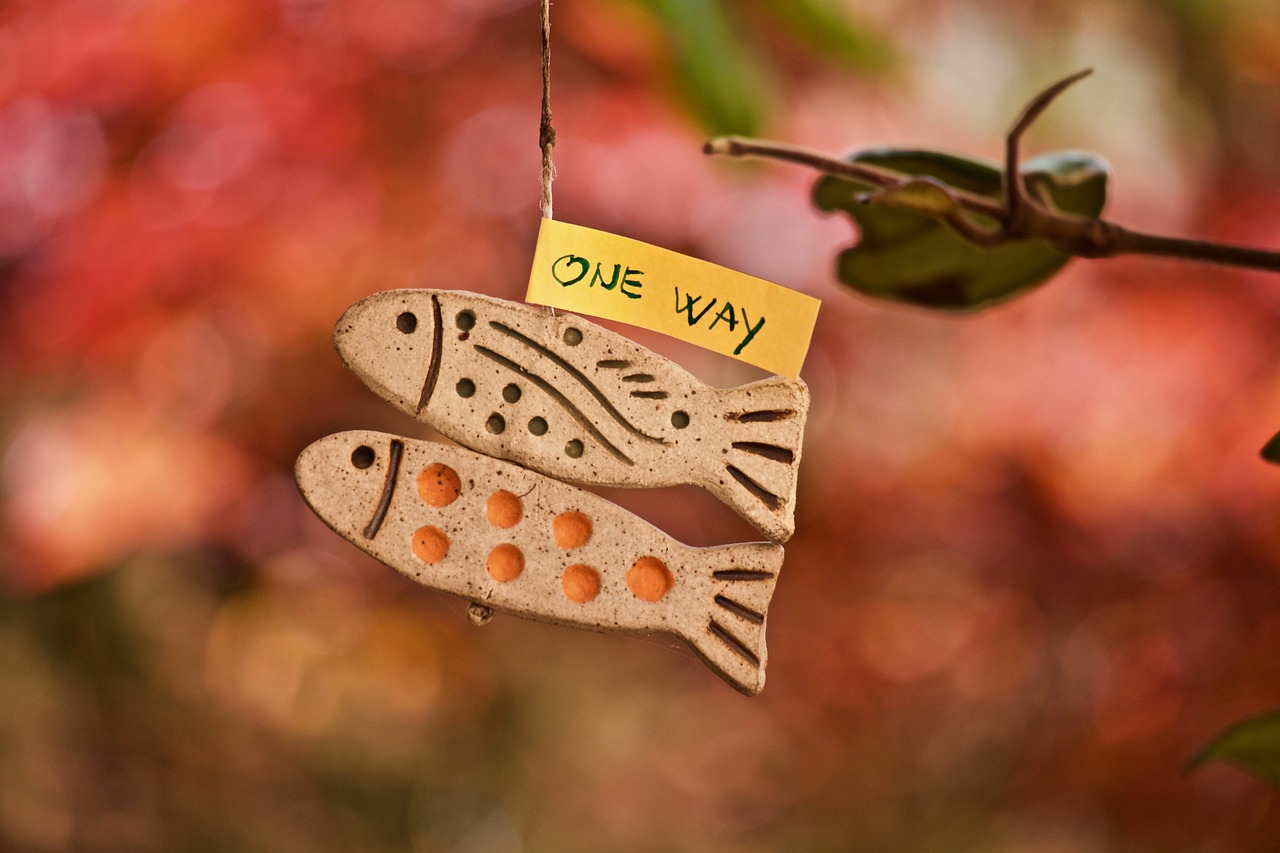
Health Choices and Ignorance
When it comes to health choices, many individuals find themselves at a crossroads between seeking information and embracing ignorance. It's a curious phenomenon, really. Imagine standing in front of a door marked "Knowledge" and another labeled "Ignorance." Which one do you choose? For some, the allure of ignorance can be incredibly tempting. Why? Because the unknown often feels less daunting than the stark reality of potential health issues. People frequently avoid seeking medical advice, fearing the worst. This avoidance can be likened to burying one's head in the sand, hoping that by ignoring the problem, it will simply go away.
Consider this: when faced with a health scare, many individuals choose to delay visiting a doctor. They might think, "If I don't know about it, it can't hurt me." This line of reasoning, while seemingly protective, can lead to severe consequences. The irony is that while ignorance may provide temporary relief from anxiety, it often results in more significant issues down the line. For instance, early detection of illnesses such as cancer can significantly improve treatment outcomes. Yet, if one remains blissfully unaware, they might miss the opportunity for timely intervention.
Let's break this down a bit further. Ignorance in health choices can manifest in various ways:
- Fear of Diagnosis: Many people fear what they might find out. The thought of receiving a diagnosis can be paralyzing, leading them to avoid the doctor altogether.
- Information Overload: In the age of the internet, the sheer volume of health information can be overwhelming. Instead of seeking clarity, some choose to ignore it entirely.
- Social Influence: Friends and family can inadvertently contribute to ignorance, either by downplaying health concerns or by sharing misinformation.
To illustrate the potential pitfalls of ignorance in health choices, consider a hypothetical scenario involving two individuals: Alice and Bob. Alice regularly visits her doctor for check-ups, staying informed about her health. In contrast, Bob avoids medical appointments, convinced that if he doesn't know about any issues, he won't have to deal with them. Over time, Alice discovers a minor health issue early on, allowing for prompt treatment. Meanwhile, Bob's ignorance leads to a late-stage diagnosis that could have been preventable.
In the end, the choice between knowledge and ignorance in health matters is not just a personal one; it has broader implications for society. Public health initiatives often emphasize the importance of awareness and education. By fostering an informed community, we can collectively combat the perils of ignorance. So, the next time you find yourself hesitating to seek medical advice, ask yourself: is ignorance truly bliss, or is knowledge the key to a healthier, happier life?
Q: Why do people avoid seeking medical advice?
A: Many individuals fear the potential diagnosis or feel overwhelmed by the information available. Some may also believe that ignorance is a safer option.
Q: Can ignorance about health lead to serious consequences?
A: Yes, avoiding medical advice can lead to late diagnoses of serious health conditions, making treatment more difficult and less effective.
Q: How can I overcome the fear of seeking medical advice?
A: Educating yourself about the importance of regular check-ups and understanding that early detection can lead to better outcomes may help alleviate fears.
Frequently Asked Questions
- What does the phrase "ignorance is bliss" mean?
This phrase suggests that not knowing something can lead to a state of happiness or contentment. It implies that awareness of certain truths can bring discomfort or anxiety, while ignorance may shield individuals from such feelings.
- Are there philosophical arguments against ignorance?
Yes, many philosophers argue that ignorance can prevent individuals from achieving true happiness. For instance, Socrates believed that knowledge is essential for a virtuous life, suggesting that ignorance might lead to poor decisions and ultimately unhappiness.
- How does Plato's Allegory of the Cave relate to ignorance?
Plato's Allegory of the Cave illustrates the struggle between ignorance and enlightenment. The prisoners in the cave represent those who live in ignorance, while the journey out of the cave symbolizes the painful but necessary pursuit of knowledge, which ultimately leads to true understanding and happiness.
- Can ignorance actually reduce anxiety?
Yes, psychological studies indicate that ignorance can sometimes lead to lower levels of anxiety. When individuals are unaware of certain stressors or negative information, they may experience a temporary sense of peace. However, this can be a double-edged sword, as ignorance may also lead to unpreparedness for future challenges.
- What are some real-life examples where ignorance seems preferable?
In everyday situations, people often choose ignorance to avoid discomfort. For instance, individuals may avoid seeking medical advice due to fear of bad news, or they may ignore troubling news on social media to maintain a sense of peace in their lives.
- How does misinformation on social media relate to ignorance?
The spread of misinformation on social media complicates the notion of ignorance as bliss. Users may find comfort in believing false information, but this can distort their perception of reality and lead to uninformed decisions that ultimately have negative consequences.
- Is it better to seek knowledge or remain ignorant?
This is a complex question with no straightforward answer. While seeking knowledge can lead to personal growth and informed decision-making, it can also bring discomfort. Ultimately, the choice between knowledge and ignorance depends on individual values and circumstances.



